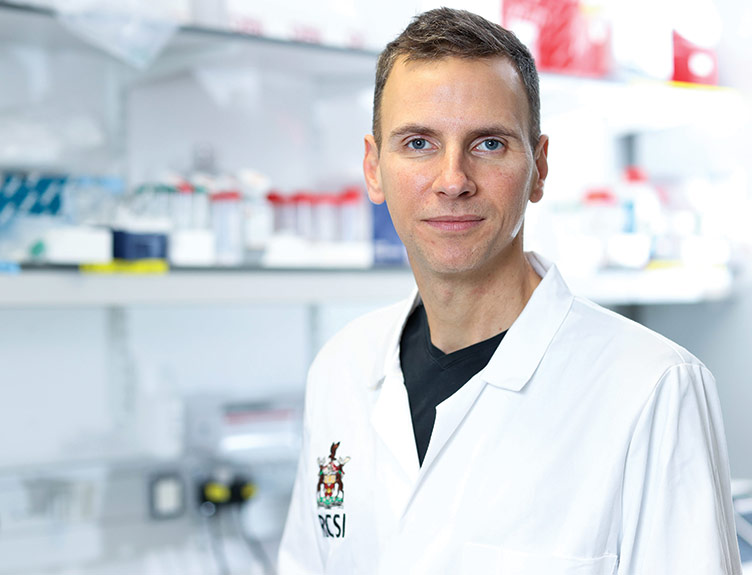RCSI scientist to shed light on role of calcium deposits in breast cancer

Dr Maria Morgan, a scientist based in RCSI's Department of Molecular and Cellular Therapeutics (MCT), has been awarded a grant worth over £90,000 (€112,821) by research charity Breast Cancer Campaign to investigate whether calcium deposits in the breast encourage the growth of breast tumours.
‘Microcalcifications' are calcium deposits that show up on a mammogram as white flecks, and can help identify early breast tumours. It is not clear how or why microcalcifications form, and it was thought that these were nothing more than an ‘artifact' and had no significant role in breast cancer.
However, Dr Maria Morgan (Senior Lecturer in MCT), based at RCSI, believes that these calcium deposits may play an active role in breast cancer - by causing inflammation, they could be encouraging breast cancer cells to grow into a tumour.Breast cancer is Ireland's most common cancer in women, with nearly 2,800 new cases diagnosed every year, and almost 700 women sadly dying from the disease each year on average.
Dr Morgan said: "Currently, we don't know why some tumours deposit calcium in this way, and whether microcalcifications have an active role in breast cancer. The grant I have received from Breast Cancer Campaign will enable me to study these calcium deposits in detail and find out if they encourage tumours to grow in the breast, which could ultimately lead to new ways of diagnosis."
During the three-year project, Dr Morgan will study microcalcifications produced by different breast cancer cells, as well as non-cancerous cells grown in a lab. Dr Morgan will also identify the different calcium-containing compounds produced by breast cancer cells and investigate if there is a link between the different compounds and the aggressiveness of the breast cancer cells.
Katherine Woods, Research Communications Manager at Breast Cancer Campaign, said: "Dr Morgan's research into this area is vital and could ultimately lead to new ways to diagnose breast cancer and better treatments. This would improve the chances of survival for people with breast cancer and bring us one step closer to our goal that by 2030 we will have identified what causes different tumours to grow and progress - enabling us to select the best treatment for every patient."



